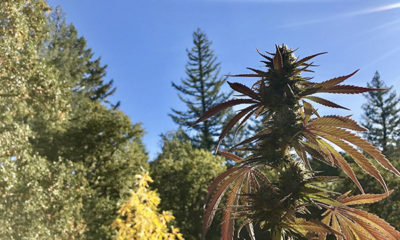
Joint Opinions
The Butterfly Effect of Prohibition
By Federal Inmate 63131-097
Jasmine is a typical 12-year-old girl. She’s pretty, smart and loves cheerleading, Instagram and Katy Perry like most girls her age. But, what separates her from many of her classmates is the fact that Jasmine hasn’t woken up to the presence of her father since she was 5 years old. She’s become accustomed to gazing out into the crowded seats at piano recitals, school plays and graduations, seeing all of the mothers and fathers of her friends and knowing her sole supporter in the audience will be her mom and only her mom. Sometimes it makes her angry, oftentimes she cries, because she really doesn’t understand why her dad has been absent for so long. What she does know is that it hurts and for some reason these events always feel like something is missing and that part never changes.
Jasmine was unlucky enough to have me as her father. A man unfortunate enough to have been arrested by drug agents for violating federal marijuana laws in 2006. My good friend, Ricardo Montes, and I operated a state-approved medical marijuana dispensary in Modesto, Calif. We paid our taxes, followed California law and it was the first time either of us had ever been accused of breaking any federal law, so it was assumed the mistake would be cleared up, or at worse, we would receive a minor penalty and carry on with our lives. We were wrong.
After a brief trial we were found guilty and sentenced to 22 years in federal prison. The assistant U.S. Attorney charged us with an drug kingpin statute that carried a mandatory minimum sentence of 20 years. It was a tool created at the beginning of the drug war to prosecute drug cartel leaders. Our prosecutor, in her ambitious quest for a substantial conviction, discovered that it would also work against state-approved medical marijuana dispensaries four decades later.
For the past seven years, Ricardo and I have resided in these horrendous prisons. We are confined within a small concrete cage surrounded by the heinous, hopeless and forgotten. Prison is a place of few smiles, where some days are survivable and others are deplorable. We have exhausted all of our appeals and our only hope for an early release would be presidential clemency or for our nation’s marijuana laws to change and some form of retroactive amortization to be granted to marijuana offenders. Though certainly we remain hopeful, either of these outcomes would be an exceptionally rare occurrence.
I wish I could say that our story is unusual and unique, but it is not. There are hundreds of men and women serving prison time with very similar stories, because there are hundreds of thousands of marijuana arrests each year. The financial cost to taxpayers for these Americans to go through our court systems, jails, probation offices and prisons is monumental.
According to the Bureau of Prisons the average annual cost to house one inmate is $29,291.25. In my case alone, it will cost taxpayers over $600,000 to house me for the duration of my sentence.
The greatest negative impact on our society is a statistic we do not track; the collateral damage the marijuana war causes to our communities and their children. There is a vast population of children with parents that cannot find gainful employment, receive aid to attend college or obtain safe housing because of a minor marijuana conviction. There is also a growing number of kids like Jasmine with mental and emotional damage that goes untreated or undiagnosed, because children of the drug war are not an official category that receive television airtime. These tragedies are exasperated disproportionately in communities of color.
In America the energy that turns the wheels of democracy is derived from the will of the people. The most frustrating aspect of this issue is that these atrocities continue despite the fact that the majority of the American people support legalization and the end to marijuana prohibition. It is long past time that we abolish these unnecessary and unjust laws.
There need not be any more Luke Scarmazzos or Ricardo Montes serving decades in prison for first time marijuana offenses. There need not be anymore Jasmines searching over empty seats in fatherless crowds because of unsupported and outdated laws. We, as a people, shouldn’t tolerate a country where a white man in Denver can purchase a small amount of marijuana and receive a discount and a smile while a black woman in New Orleans who does the same receives a decade in prison. The injustice is egregious. It goes against the very foundation and principles our country was built upon. Who knows if marijuana legalization is the cure-all answer, but I am absolutely certain prohibition is not.
Can you relate to this prisoner’s experience? Share your story with us in the comments.























